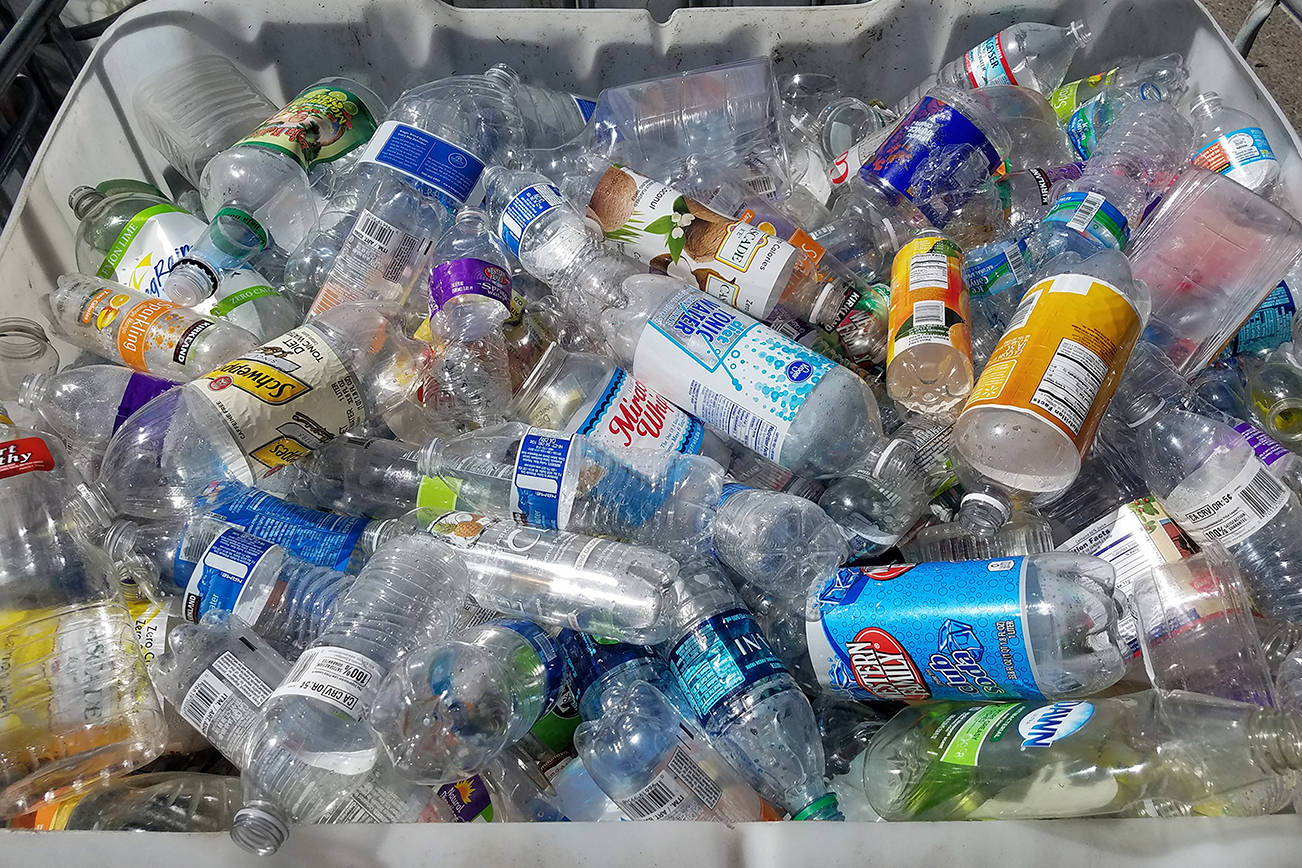Submitted by Lopez Solid Waste Disposal District
China has put a wrench in the spokes of global recycling by banning the import of certain recyclables from around the world, including plastics, mixed paper, textiles, and trace metals. The Lopez Dump is monitoring the situation closely because many recyclables, together with those collected along the west coast, are shipped to Chinese processing facilities. These facilities have been developed and in use since the 1980s and will now be off-limits to the US recycling industry. China has filed an official ban with the World Trade Organization and says it will be fully implemented by the end of 2017.
China’s move is reportedly an effort by the Ministry of Environmental Protection to clean up pollution entering the country through contaminated material streams. The materials most targeted for refusal are those with the least value or arriving in mixed batches potentially containing high amounts of garbage. The U.S. recycling industry is capable of collecting, but not processing these and other materials at the volume being collected from consumers. Alternative global markets exist but are already saturated by multinational corporations who have shifted out of China over the past several months. If more markets are not developed to receive them, these items will soon need to be disposed of as garbage. San Juan County islanders should take note of both the negative and positive impacts the Chinese recycling ban may catalyze.
Plastics to Landfill?
At its worst, the ban will mean a shut-down or significant slow-down of global recycling efforts. Many industry officials are claiming that the move is already forcing the wheels to come off of the global recycling engine. Stockpiling materials at Material Recovery Facilities (MRF) is a temporary solution, but the next immediate step may be disposal of some material types as garbage into the landfill.
New Markets Can Emerge
In a positive light, the ban can provide jobs and economic development domestically by helping to spark improved recyclable manufacturing capacity within the United States. Even better, it can help enhance efforts in local communities like Lopez Island, forcing us to rethink the ways in which we consume resources, generate waste, and rely on global markets to make our “stuff disappear” in the first place. The ban is a wake-up call to the fact that commercial packaging, current recycling practices and human consumption in general may not be sustainable.
A Lopez Solution
With our community’s steadfast sorting of specific material types, the Lopez dump is already producing some of the least contaminated material bales around – making it easier to resell Lopezian recyclables to outside buyers. If the Chinese ban is simply an attempt to reduce the import of contaminated streams of materials that end up becoming garbage, then materials coming from facilities like ours may be able to maintain international buyers. In addition, domestic processing plants for some of the higher-grade plastics such as PETE bottles (no. 1–2) have been developed along the west coast and could be an alternative outlet for our materials. All plastics are not created equal, however, and reducing consumption of plastics no. 3–7 or paying to dispose of them as garbage could become essential.
The whole situation has the potential to leave the Lopez dump and our customers in a bit of a lurch, but now is the time to have our eyes open to new opportunities that will help us achieve our mission of zero waste: How might our community significantly reduce consumption of plastics? Would local processing and manufacturing with recycled plastics be technologically feasible and economically sound? What opportunities for upcycling materials locally deserve research and development?
The Lopez dump is committed to helping our customers achieve zero waste by effectively recycling and repurposing as much material as possible. At this time, not enough is known about the global situation to dictate a change in our current customer sorting practices. We look forward to continuing the dialogue about this important issue over the next several months.



